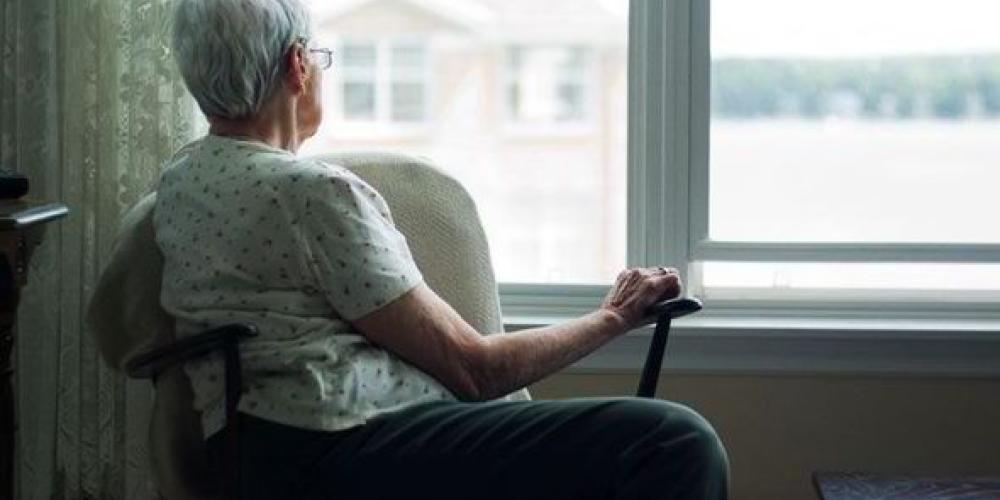
Loneliness Awareness Week, runs from Monday 8 until Sunday 15 June and is a week dedicated to raising awareness of loneliness. It’s all about creating supportive communities by having open, honest conversations and everyone can get involved.
Hosted by Marmalade Trust, a leading loneliness charity for all ages, this year will be the ninth Loneliness Awareness Week.
This year the theme is reducing stigma and our creative theme will be Meeting Loneliness Together.
What is loneliness?
We all feel lonely at times – it’s a natural human emotion. We're biologically wired for social contact, and loneliness is our signal that we need more. The definition: Loneliness is a perceived mismatch between the quality or quantity of social connections that a person has and what they would like to have. Everyone's experiences of loneliness are different. It's subjective and personal to each of us.
Is loneliness the same as being alone?
You don’t have to be on your own to feel lonely - you might feel lonely in a relationship or while spending time with friends or family, on social media, in a city or at university. You can feel lonely if you feel like you are not being acknowledged or understood by those around you.
You can feel lonely when the relationships in your life are lacking in emotional depth, if you’ve grown apart from someone or if communication has broken down. You might feel lonely when you're by yourself. Other people might choose to be alone and live happily without much social contact. Loneliness can also be characterised by its intensity or how strongly it is felt, which can change from moment to moment and over different durations of time.
Are there different types of loneliness?
There are different types, including:
- Emotional loneliness → When someone you were very close with is no longer there. This could be a partner, family member, close friend or pet.
- Social loneliness → When you feel like you’re lacking a wider social network of friends, neighbours or colleagues.
- Transient loneliness → A feeling that comes and goes.
- Situational loneliness → Loneliness which you only feel at certain times like Sundays, bank holidays or Christmas.
- Chronic loneliness → When you feel lonely all or most of the time.
Who experiences loneliness?
Most of us will experience loneliness at some point in our lives, regardless of age, circumstance and background. We all experience loneliness differently. It’s a common misconception that loneliness is limited to older people. In fact, 16-24-year-olds are the loneliest age group in the UK. In 2023, a survey from Nextdoor in partnership with Marmalade Trust revealed that 85% of UK adults had experienced loneliness in the last 12 months. Almost half (44%) felt chronically lonely.
Research suggests that some people are more vulnerable to loneliness than others. Examples of this include people who:
- Have no friends or family, are a single parent or care for someone else
- Belong to a minority group or live in an area where there aren't many people with a similar background
- Are excluded from social activities because of mobility problems
- Don't have much money for certain social activities
- Experience discrimination and stigma because of your gender, race or your gender or sexual identity
- Have experienced any kind of abuse, including neglect, which may make it find it harder to form close relationships with other people.
What causes loneliness?
Loneliness has many different causes, which vary from person to person. There are key life points which will increase the likelihood of feeling lonely.
Some examples are:
- Moving away from home
- Starting university or a new job
- Becoming a new parent
- Experiencing mental health problems
- A relationship break-up
- Suffering a bereavement
- Retirement
Organisations that can offer support:
- Samaritans - A free listening service for whatever you are going through.
T: 116 123 (24 hours, daily) or email: jo@samaritans.com - Mind - Resources, information, a confidential helpline and an information line signposting service.
T: 0300 123 3393 (9am – 6pm, Monday to Friday) - Campaign Against Living Miserably - Support on a range of issues for anyone who needs it.
T: 0800 58 58 58 (5pm – midnight, daily) - The British Red Cross - A range of resources and helpline if you feel lonely or worried.
T: 0808 196 3651 (10am – 6pm, daily) - Every Mind Matters - NHS-approved, simple and practical ways to help ease anxiety, manage stress, lift your mood and sleep better
For more information visit https://www.marmaladetrust.org


